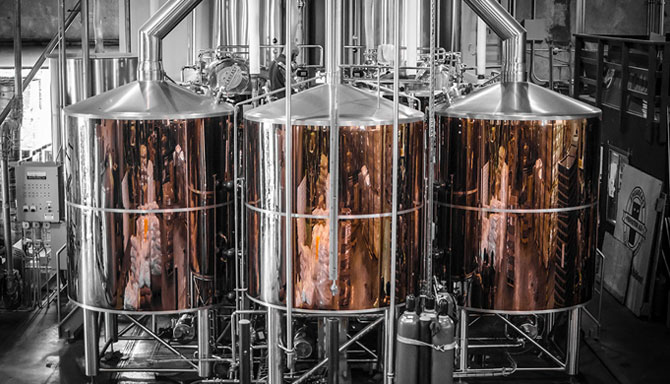
After announcing plans to indefinitely cease brewing, packaging and taproom operations on March 10, San Francisco’s Speakeasy Ales & Lagers has once again resumed production, according to an update posted to the company’s website and social media accounts.
“Speakeasy Ales & Lagers is working hard to maintain a future for their San Francisco brewery after agreeing to enter receivership on March 13, 2017,” the brewery wrote in a statement. “The company’s tap room will remain closed, but the brewery continues to produce your favorite beers, in addition to the all-new Murky Business APA. Speakeasy will continue while a sale to a new owner is anticipated to close during the next 45 days.”
The court-ordered receiver — identified by a source familiar with Speakeasy’s financial situation as Jigsaw Advisors — was appointed to run the failing brewery on March 13 after the company neglected to make payments to Union Bank, its primary creditor, and other vendors.
Jigsaw is now overseeing the company’s operations and has reportedly instructed Speakeasy’s eight remaining employees (48 were terminated last week) to recommence brewing and packaging, according to the source.
“They want to keep the brand alive and keep beer in the hands of distributors,” the source said. “They are making sure the brand is still perceived as viable.”
Calls placed to Jigsaw Advisors — which describes itself on its website as a turnaround management firm providing “advisory and interim management services to companies often experiencing cash-flow shortfalls, operational and management challenges, over-leveraged balance sheets, and fatigued creditor groups” — were not returned as of press time.
A second firm, Business Capital — a commercial finance company with offices in San Francisco and Westport, CT — was also tapped to sell the brewery.
Reached by phone, Chuck Doyle, the firm’s managing director, confirmed that Business Capital had released an investment deck and that it had been contacted by several potential buyers interested in acquiring all of part of the San Francisco-based brewery.
It’s still unclear whether the brewery’s assets, as well as the Speakeasy brand itself, will be sold together or at all.
“There’s a good number of groups who are interested in the brewery, and we’re continuing to get inquiries,” brewery spokesman Brian Stechschulte told SFGate last week.

So how did Speakeasy find itself in this situation?
In early 2015, the company secured a multi-million dollar loan from Union Bank, which had agreed to finance Speakeasy’s ambitious $7.5 million expansion effort. At the time, Speakeasy founder and CEO Forest Gray, who has since been removed from day-to-day management of the company, said the expansion would enable the brewery to eventually produce as much as 90,000 barrels of beer annually.
According to the source, Gray had reportedly modeled the expansion initiative on prior growth trends — 50 percent in 2013 and 10 percent in 2014.
But competition from new craft breweries led to slower-than-anticipated growth in 2015, when the company’s production increased just 5 percent. Speakeasy produced 33,250 barrels of beer that year, according to data from the Brewers Association.
Shortly after the expansion was completed, in the fall of 2015, Union Bank reportedly informed the brewery that it planned to withhold more than $1 million of the $7.5 million it had originally committed. Around the same time, Speakeasy began working with First Beverage Group — a financial services firm dedicated to the beverage industry — to solicit investment or find a buyer for the company, the source told Brewbound.
In early 2016, the brewery ran into financial trouble as it struggled to service its bank debt and pay vendors, the source told Brewbound.
After an unsuccessful attempt to sell the brewery, Speakeasy hired a separate investment bank to raise debt capital, a second source familiar with Speakeasy’s financial situation told Brewbound earlier this month.
Speakeasy failed to secure additional debt capital, and issued a press release on March 10 stating that it was “forced” to “immediately cease brewing, packaging, and tap room operations.” It cited “difficulty securing capital investment and outstanding debt obligations” as the primary reasons for closure.
“The company is financially insolvent and requires new capital to move forward,” Gray said at the time. “Whether that will happen is unclear, but I do hope the brewery and brand will persist.”
Offers for the brewery’s assets and the Speakeasy brand are due by mid-April, Doyle confirmed to Brewbound.
Additional details about the sale process are expected in the coming weeks and Brewbound will continue to follow this story as it develops.
